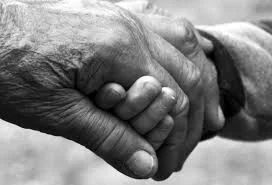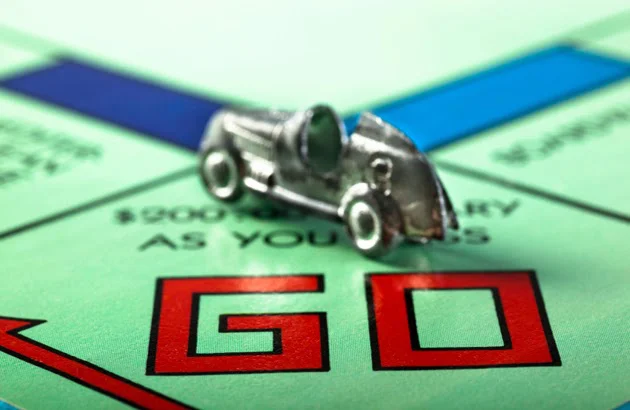Words Matter
/ Ilse FierroWhat type of person do you imagine when you think of the word “exotic”?
Salma Hayek? Priyanka Chopra? Dev Patel? Rihanna? Yes?
How about Jessica Chastain, Chris Pratt, or January Jones? No?
Why not? What is it about someone like Chrissy Teigen that invokes the use of this label, but not someone like Drew Barrymore?

via Entertainment Tonight
By definition, “exotic” means foreign or different. A plant or a food can be exotic. But a person?…
It’s complicated.
I am a White-passing Latina. Well… kind of. I have been told that I don’t “look Mexican” (whatever that means). I’ve been asked if I am Italian, Persian, or Portuguese. Oh, and I have also been told I only look like I am “half Mexican”. People will often say, to my face, things like:
“What are you?”
“I would have NEVER guessed you were Mexican!”
“You’re really not mixed?”
“You have an exotic look to you.”
All of this has been said with a huge grin on their face. It’s as though these things were a compliment. In their defense, they’ve probably learned to believe that they are complimenting me.

via Giphy
Because of European colonization, theirs has been the standard of beauty since, like… forever. If you do not possess European features, you are not thought of as conventionally “attractive.” However, there is an exception: Exotic Beauty. When a person is considered “good-looking” DESPITE lacking European features, they are often labeled as “exotic”— an other. In a way, it’s condescending. You are essentially telling a person: “You’re nice to look at, but you don’t have real beauty”. Not only is this problematic, belittling, and insulting, but it can also be dangerous.
When we reduce a person to their “ethnic” stereotype (the “spicy Latina,” the “submissive Asian,” the “hyper-sexualized Black woman”), by means of “othering,” we are unintentionally (although at many times, also intentionally) objectifying them. It becomes easier to justify other degrading language and actions toward these individuals when they are basically seen as little more than a caricature. If I, as a Latina, am passionate and outspoken, I am seen as “spicy,” playing into the label I have been given. Not only have my views and feelings been disregarded for this reason, but I have also been on the receiving end of some serious verbal abuse and humiliation.

via Tumblr
The vocabulary we use to describe a person or group of people is important. Because words matter. They can be used to marginalize and make us feel ashamed and embarrassed to inhabit the beautiful bodies we were born into (as was the case with elementary school era Ilse, but that’s for another post). They can be used as forms of micro-aggression, thereby facilitating the justification of maligning and reducing people as “inferior” to others.
However, the language we use can also lift us up. It can allow our self-confidence to flourish and thrive. More importantly, when we as individuals are cognizant of the ways in which we describe others, it sends a message— We are valued. We are beautiful. We are special, regardless of our differences.
Share your comments at the bottom of the page.
Whatismyhealth © 2018
A recent chain of events that has led me to, dare I say it... feel good about myself again.
Holiday photo ops carry a mostly nice sentiment, but can also be a reminder of our body insecurities.
Do you ever just read or hear something and immediately the connection you have with it is soul-affirming?
When do children stop trying being themselves and start striving to be like others, judging those who are not alike?
I still feel the need to have an extra change of clothes, or avoid being sweaty for extended periods of time around other people.
You never know who deals with the same things you do. Anything you’re going through can be worked through.
Every woman looks differently, grows babies differently, and experiences pregnancy and childbirth differently.
My mental and physical health remains in a constant state of limbo; some days are better than others.
We may not get back to where we once were, but we can fight to get closer to where we want to be.
What rings true for so many parents is the desire to protect our children from the things we’ve struggled with ourselves.
It’s amazing how much of a difference facial hair can make in terms of the way we view someone’s physical appearance.
Senior citizens are deserving of more respect, dignity, and reverence than they are given.
Getting fit is hard. Even tougher is getting back into shape after falling out of a routine.
Would our perceptions of ourselves change if the things we were watching told us differently?
You can choose to see the beauty and strength in yourself and others, because we all have it.
After a few shirts start to stretch, you realize you may have put on a little more than “a few pounds.”
I’ve spent much of my life being uncomfortable with my body, but what I have learned isn’t for nothing.
Remember when movement consisted of having fun? This is what movement should be like, always.
The things that negative body image steals from us on a daily basis is something we shouldn’t have to accept.
We can’t help how much space we take up, but we can all be considerate of each other’s space.
On the day when we celebrate freedom, it can be a struggle not to be trapped by the urge to overeat.
There have been a lot of struggles in my life, especially when it has come to loving myself.
It’s hard to look in the mirror and like what I see, but I am beautiful because I decided that I am.































You have to find your own reasons to overcome the negative way you see and feel about yourself.